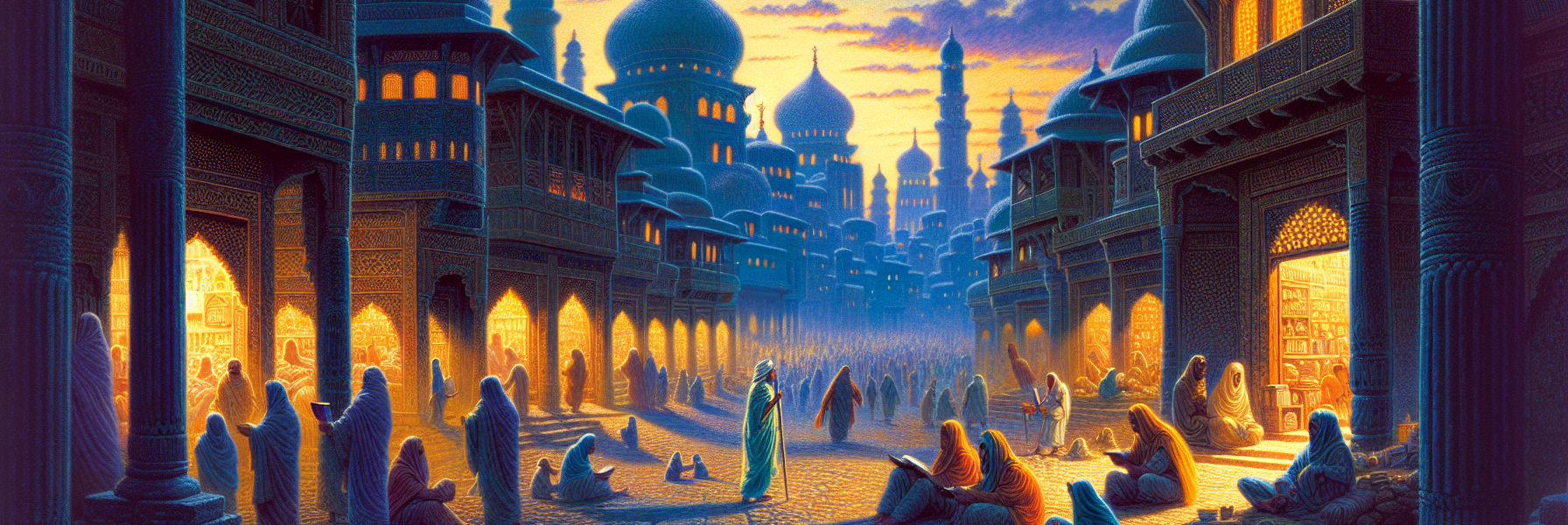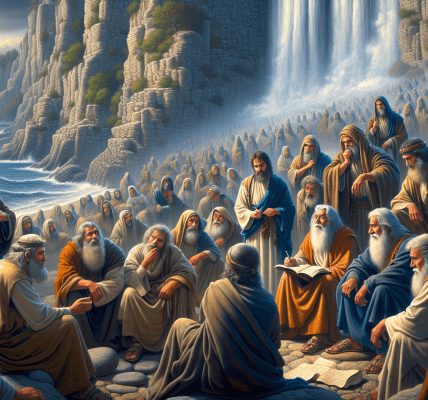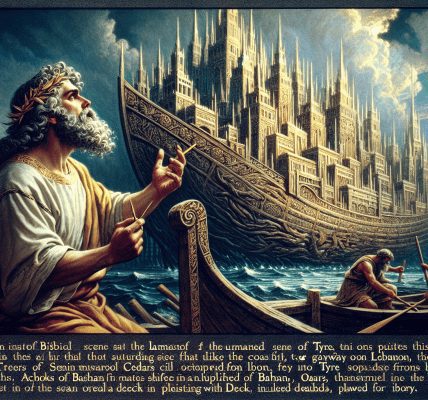**The Call of Abram: A Journey of Faith**
The sun hung low over the city of Ur, casting long shadows across the bustling streets where merchants hawked their wares and children darted between the legs of travelers. In the midst of this ancient city lived a man named Abram, son of Terah, a descendant of Shem. Though surrounded by the idols and gods of the Chaldeans, Abram’s heart yearned for something greater—a truth beyond the stone and wood figures his neighbors worshiped.
One evening, as Abram sat beneath the stars, a deep stillness settled over him. Then, like a whisper carried on the wind, the voice of the Lord spoke to him:
*”Go from your country, your people, and your father’s household to the land I will show you.”*
The words resonated in Abram’s soul, stirring both awe and uncertainty. Leave Ur? Leave all he had ever known—his family, his home, the security of his father’s house? Yet the command was clear, and with it came a promise so vast it seemed impossible:
*”I will make you into a great nation, and I will bless you; I will make your name great, and you will be a blessing. I will bless those who bless you, and whoever curses you I will curse; and all peoples on earth will be blessed through you.”*
Abram’s breath caught in his throat. A great nation? His wife Sarai was barren—how could this be? Yet the voice of the Lord carried a weight of truth that left no room for doubt. With trembling faith, Abram rose and sought out his wife.
Sarai listened as he recounted the divine call, her dark eyes searching his face. Though the journey ahead was uncertain, she trusted her husband—and more importantly, she trusted the One who had spoken to him. Together, they prepared to leave.
Abram’s father, Terah, though old and weary, agreed to accompany them, along with Abram’s nephew Lot. They gathered their possessions—flocks of sheep and goats, servants, tents, and provisions—and set their faces toward the land of Canaan. The caravan moved slowly, winding through arid plains and rocky hills, the sun beating down by day and the cold desert air chilling them by night.
Months passed before they reached Harran, a bustling crossroads where travelers from distant lands traded goods and stories. There, Terah’s strength failed, and he died. Abram mourned his father, but the call of the Lord still pressed upon him. With Sarai and Lot at his side, he pressed onward, following the unseen guidance of God.
At last, they arrived in the land of Canaan, a fertile region inhabited by the Canaanites. The Lord appeared to Abram once more and said, *”To your offspring I will give this land.”*
Abram built an altar there, stacking stones with his own hands as an act of worship and remembrance. The smoke of his sacrifice curled upward, a fragrant offering to the God who had brought him this far.
But soon, a famine gripped the land, forcing Abram to journey south to Egypt. As they approached the borders of the powerful kingdom, fear gnawed at Abram’s heart. Sarai was beautiful, and he knew the Egyptians might kill him to take her. In a moment of weakness, he turned to her and said, *”Tell them you are my sister, so that I will be treated well for your sake and my life will be spared.”*
Sarai agreed, and as Abram had feared, the Egyptian officials marveled at her beauty. Word reached Pharaoh himself, and she was taken into his palace. Abram, now posing as her brother, was lavished with gifts—sheep, cattle, donkeys, servants, and camels. But the Lord would not allow His promise to be thwarted.
Plagues struck Pharaoh’s household, and the truth was revealed. Enraged, Pharaoh summoned Abram. *”What have you done to me?”* he demanded. *”Why didn’t you tell me she was your wife? Take her and go!”*
Abram left Egypt humbled, his faith tested but not broken. He returned to Canaan, where he and Lot prospered so greatly that the land could not support both their herds. Quarrels broke out between their herdsmen, and Abram, ever the peacemaker, turned to Lot.
*”Let’s not have any quarreling between us,”* he said. *”The whole land is before you. If you go to the left, I’ll go to the right; if you go to the right, I’ll go to the left.”*
Lot chose the lush plains of the Jordan Valley, pitching his tents near Sodom—a city already known for its wickedness. Abram remained in Canaan, and after Lot departed, the Lord spoke again:
*”Look around from where you are—north, south, east, and west. All the land you see I will give to you and your offspring forever. I will make your descendants like the dust of the earth—so numerous that none can count them.”*
Once more, Abram built an altar, this time at Hebron, and worshiped the Lord. Though he still had no child, though the fulfillment of God’s promise seemed distant, Abram believed. And in that belief, he found the strength to wait, to trust, and to walk forward into the unknown, guided by the hand of the Almighty.
Thus began the journey of the man who would become the father of nations—a journey not of perfection, but of faith.



